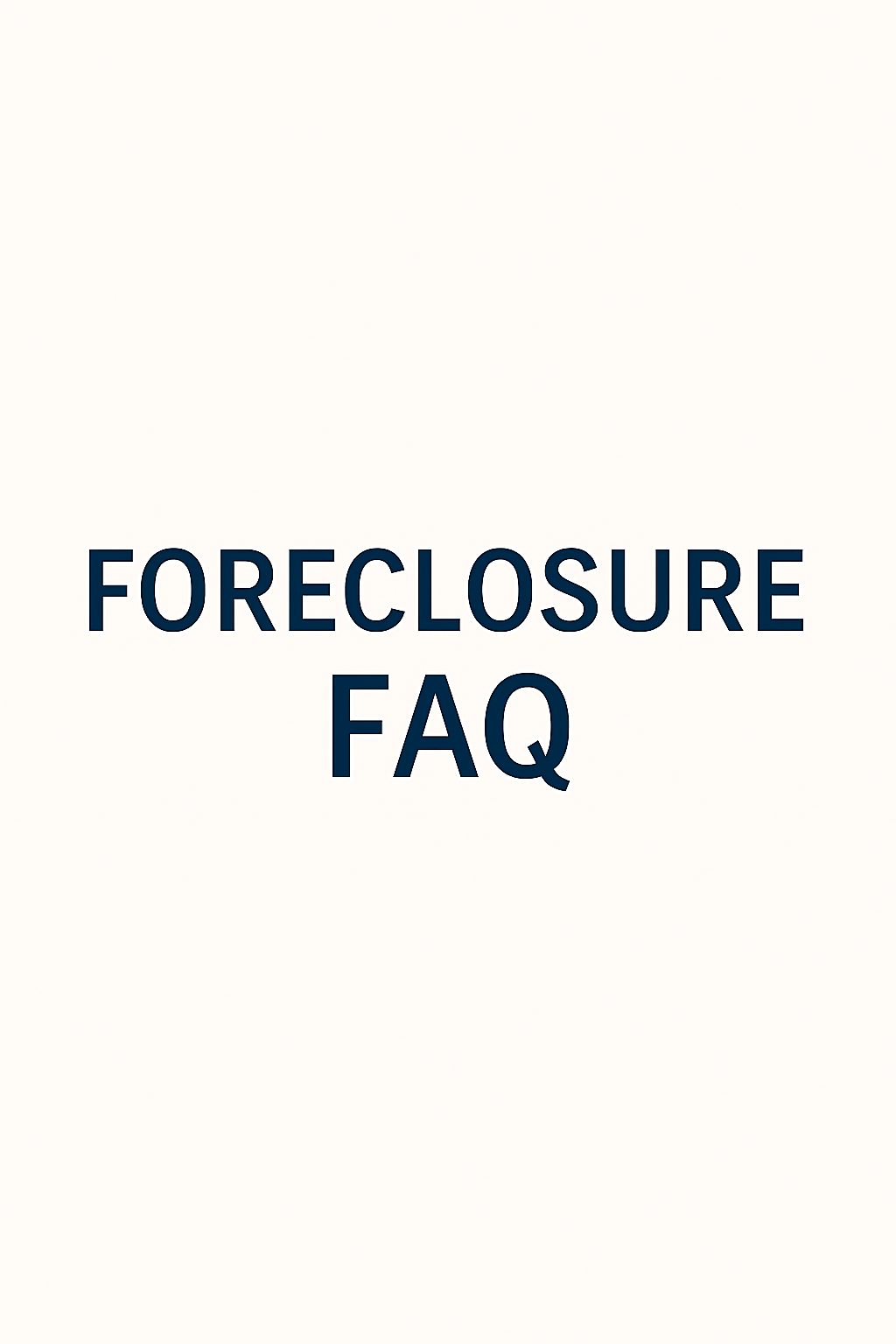- What is foreclosure?
Foreclosure is the legal process a lender uses to take ownership of a property when the homeowner fails to make mortgage payments. The home is then sold to recover the unpaid loan balance.
- What causes foreclosure?
Common reasons include:
- Missed mortgage payments
- Job loss or reduced income
- Medical bills or unexpected expenses
- Divorce or major life changes
- Adjustable-rate mortgage increases
- How long does the foreclosure process take?
The timeline varies by state, but it typically takes 3 to 6 months after the first missed payment before foreclosure is finalized. Some states require judicial proceedings, which can take longer.
- Can I stop foreclosure once it starts?
Yes, options include:
- Loan modification – Adjusting your loan terms
- Repayment plan – Catching up on missed payments
- Forbearance – Temporary payment relief
- Selling your home – Before the foreclosure sale
- Filing bankruptcy – As a last resort
- Will foreclosure affect my credit score?
Yes. A foreclosure can lower your credit score by 100 to 160 points and remain on your credit report for 7 years.
- Can I sell my home during foreclosure?
Yes, you can sell your home before the foreclosure sale date. If your home’s value is less than what you owe, you may need a short sale, which requires lender approval.
- What is a short sale?
A short sale is when your lender agrees to let you sell your home for less than the remaining mortgage balance to avoid foreclosure.
- What happens after foreclosure?
The lender takes ownership and sells the property. You may still owe a deficiency balance if the sale price doesn’t cover the full loan amount, depending on state laws.
- How can I avoid foreclosure?
- Communicate with your lender early
- Explore loan modification or refinancing
- Seek housing counseling from HUD-approved agencies
- Consider selling before foreclosure starts. Contact me TODAY, if you are facing possible foreclosure.

 Facebook
Facebook
 X
X
 Pinterest
Pinterest
 Copy Link
Copy Link
